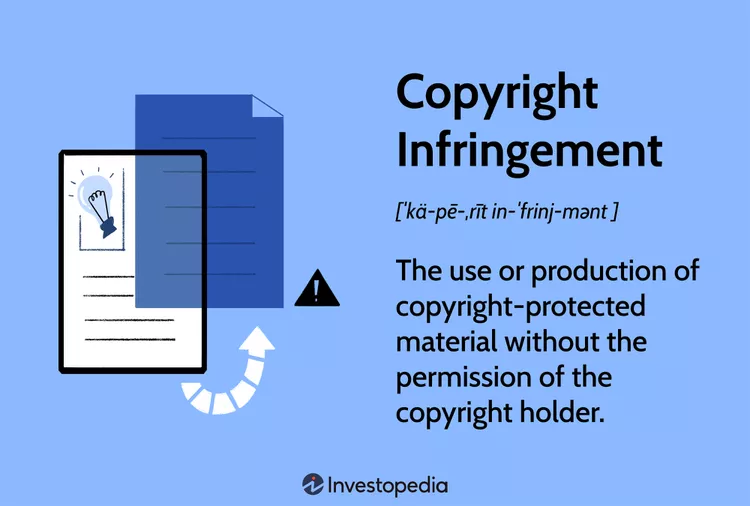The intersection of artificial intelligence and copyright law has become a major talking point, particularly as generative AI tools are being used across industries to create written content, images, music and more. However, a recent court ruling in the United States has reaffirmed a key limitation for marketers and creators: wholly AI generated works cannot be copyrighted.
For marketers increasingly relying on generative AI tools, this presents both a legal consideration and a strategic one.
The Case That Reinforced the Rule
The ruling centres around a case brought by Stephen Thaler, a computer scientist and long-time advocate for machine-created intellectual property. Thaler submitted an AI generated poem for copyright protection and, when rejected, took legal action to challenge the US Copyright Office’s stance.
Thaler argued that current copyright laws are outdated and ill equipped to deal with AI generated content. He claimed that copyright protection should apply regardless of whether a human or a machine created the work. However, the Court of Appeals for the District of Columbia Circuit unanimously rejected this argument.
Judge Patricia Millett, writing for the court, stated plainly that “the best reading of the Copyright Act is that human authorship is required for registration”. The ruling hinged on the idea that copyright law, by design, assumes a human author, particularly given the need to determine the length of copyright (based on the author’s life) and who inherits the rights after death.
Machines, the court noted, “do not have lives”, making it impossible to apply current copyright frameworks to AI generated works.
What This Means for Marketing Teams
Marketers using AI tools to create content must now accept a critical limitation: if an AI tool is solely responsible for creating a work, whether it’s a logo, image, blog post or social media caption, then that work is not protected by copyright.
In practical terms, this means:
-
You cannot prevent others from using, reproducing or monetising that AI generated work.
-
You cannot license it exclusively or claim it as your intellectual property.
-
You will have no legal grounds to pursue copyright infringement claims.
This is particularly relevant for brands producing visual assets or content at scale using tools such as Midjourney, DALL·E or ChatGPT. If a piece of work is created purely by prompting a machine, without significant human creative input, it is not legally protected.
The Importance of Human Intervention
The Copyright Office has repeatedly emphasised that human involvement is the determining factor. AI can be used as a tool, but copyright protection hinges on the extent to which a human shapes the output.
For example, if a designer uses generative AI to produce a rough visual, but then reworks the output manually in Photoshop, selects key elements, makes layout decisions and refines the concept creatively, there is likely a strong case for human authorship. The same applies to written content that is significantly edited or rewritten by a human.
In short, prompts alone are not enough. The human hand and mind must be visibly present in the final creative output.
Legal Grey Areas and Future Developments
The ruling leaves no doubt about the current legal landscape, but the conversation is far from over. As AI tools become more embedded in creative workflows, questions around ownership, licensing and originality will become more urgent.
Some speculate that industry pressure, particularly from large content producers such as film studios, publishers and advertising agencies, may eventually drive legislative changes. But that is unlikely to happen in the short term.
For now, brands and agencies must work within the existing framework and adapt their content creation practices accordingly.
Strategic Considerations for Marketing Leaders
For senior marketers, this legal ruling should prompt a review of how generative AI tools are being used across content, design and communications teams. Key questions to consider:
-
Are you relying solely on AI outputs, or are human creatives adding significant input?
-
Are your teams aware of the copyright limitations of AI generated work?
-
Do your content workflows ensure that human intervention is clear and demonstrable?
-
Have you updated internal policies or contracts to reflect these issues?
As AI continues to evolve, its value to marketers is undeniable. But so too are the legal and ethical considerations. The challenge now is to strike a balance, leveraging the speed and scale of AI while ensuring that human creativity remains central to the process.
Ownership, after all, comes with responsibility, and only humans can claim both.




RECOMMENDED FOR YOU
Meta Taps Publishers to Power AI Outputs
Meta has re-entered the news licensing space with a…
Meta has re-entered the news licensing space with a…
LinkedIn Boosts Brand Ads With AI Tools
LinkedIn is expanding its advertising capabilities with a new…
LinkedIn is expanding its advertising capabilities with a new…
Meta Launches AI Support Hub on Facebook and Instagram
Managing account issues on Facebook and Instagram has long…
Managing account issues on Facebook and Instagram has long…